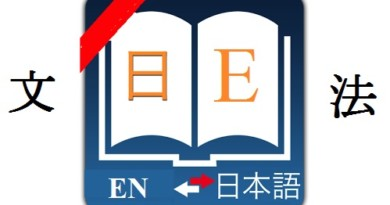Japanese がち grammar gachi
Hello everyone! In this post, we will introduce you to the next lesson: Japanese がち grammar gachi.

Usage 1
Nがち
Meaning : Describe the meaning “A thing/person is tend to be like that or might become like that”. Use when you want to talk about something that is unusual (Used to talk about negative nature of something).
Example :
この数年、父は病気がちだ。
Kono suunen, chichi ha byouki gachi da.
My father is often sick in recent years.
祖父は歳のせいか、最近ものを忘れがちだから、とても心配する。
Sofu ha toshi no seika, saikin mono wo wasure gachi dakara, totemo shinpai suru.
Because my grandfather is old, he tends to forget things recently, so I am very worried.
A「このごろ、田中さんはミスをしがちです。何か気にかかることがありそうだ。」
B「彼に直接に聞いたら?」
A : “Kono goro, tanaka san ha misu wo shi gachi desu. Nani ka ki ni kakaru koto ga ari sou da.”
B : “Kare ni chokusetsu ni kiitara?”
A : “These days, Mr. Tanaka tends to make mistakes. He seems to worry about something.”
B : “What about asking him directly?”
恋人は怒りがちだ。何か俺に不満がありそうだね。
Koibito ha okori gachi da. Nani ka ore ni fuman ga ari sou da ne.
My lover tends to get angry. Maybe she has something unhappy with me.
数日から天気が雨がちだ。洗濯物を何日かけるのにまだ濡れています。
Suujitsu kara tenki ga ame gachi da. Sentakumono wo nannichi kakeru noni mada nurete imasu.
It tends to rain these days. I have hung laundry for many days, but it is still wet.
A「あの子は栄養が不足になりがちだ。」
B「こんなにやせているに見えるからね…」
A : “Ano ko ha eiyou ga fusoku ni nari gachi da.”
B : “Konna ni yasete iru ni mieru kara ne…”
A : “That child tends to be undernourished.”
B : “Because he looks so thin…”
あの人はよく礼儀正しくないので、皆に嫌われがちだ。
Ano hito ha yoku reigi tadashikunai node, mina ni kiraware gachi da.
That person is often impolite, so he tends to be hated by everyone.
会社を離れると、同業とだんだん疎遠になりがちだ。
Kaisha wo hanareru to, dougyou to dandan soen ni nari gachi da.
When leaving the company, I tend to be estranged with my colleagues.
最近ボーナスがあるので、私達は浪費しがちだ。
Saikin bo-nasu ga aru node, watashitachi ha rouhi shi gachi da.
Because of the recent bonus we tend to spend a lot of money.
日常はこの駅は空いていますが、この頃混乱しがちです。
Nichijou ha kono eki ha totemo suite imasu ga, kono goro konran shi gachi desu.
This station is empty on daily basis, but it tends to be chaotic recently.
先生「中村さん、何で最近学校を休みがちなんだけど、何あったんですか?
B「実は私は友達の代わりにバイトをやらなきゃならないので…」
Sensei : “Nakamura san, nande saikin gakkou wo yasumi gachi nan dakedo, nani attan desu ka?”
B : “Jitsu ha watashi ha tomodachi no kawari ni baito wo yaranakya naranai node….”
Teacher : “Nakamura, you are often absent from school recently, what happened?”
B : “Actually, because I have to do part-time job for my friend…”
A「田中くん、会議に欠席しがちですね。ちゃんと理由を言ってください。」
B「すみません。特別な理由はないけど…」
A : “Tanaka kun, kaigi ni kesseki shi gachi desu ne. Chanto riyuu wo itte kudasai.”
B : “Sumimasen. Tokubetsu ha nai kedo…”
A : “Tanaka, you are often absent from meetings. Please tell me the reason.”
B : “I’m sorry. I have no special reason…”
新しい車を買った後、車だけで通勤するので、運動不足になりがちだ。
Atarashii kuruma wo katta ato, kuruma dake de tsuukin suru node, undou fusoku ni nari gachi da.
After buying a new car, because I only go to work by car, I tend to lack exercise.
お金を騙された後、あの人は誰でも疑いがちである。
Okane wo damasareta ato, ano hito ha dare demo utagai gachi de aru.
After being deceived, that person tends to suspect everyone.
あのやつは小さい成功ができたのに、自分の能力を自慢しがちです。
Ano yatsu ha chiisaii seikou ga dekita noni, jibun no nouryoku wo jiman shi gachi desu.
That guy has a small success but tends to boast about his abilities.
石田くんは強い人ですが、相手を軽視しがちがあるので、負けました。
Tanaka kun ha tsuyoi hito desu ga, aite wo keishi shi gachi ga aru node, make mashita.
Ishida is a strong person, but he tends to despise his opponents, so he lost.
Usage 2
Vます (remove ます) + がち
Meaning : Describe the meaning “do something inadvertently”. It is often used with bad behaviors and words like 「どうしても」、「つい」、「うっかり」、「てしまう」
Example :
ダイエット中なのに、つい食べ物を食べすぎがちだ。
Daietto chuu na noni, tsui tabemono wo tabesugi gachi da.
I am on a diet, but I eat too much food.
実践せずに理論だけ研究すると、この研究の本当の意味を忘れがちになるでしょう。
Jissen sezuni ronri dake kenkyuu suru to, kono kenkyuu no hontou no imi wo wasure gachi ni naru deshou.
If you only study theory without putting it into practice, you will tend to forget the true meaning of this research.
この漢字とその漢字の読み方は、間違いがちです。
Kono kanji to sono kanji no yomi kata ha, machigai gachi desu.
I tend to mistake the way of reading of this Kanji for that Kanji.
上司の命令がわからなくて、誤りを犯しがちである。
Joushi no meirei ga wakaranakute, ayamari wo okashi gachi de aru.
I don’t understand my boss’s orders so I tend to make mistakes.
俺はうっかり大きい声で話しがちですから、時々相手に迷惑をさせます。
Ore ha ukkari ookii koe de hanashi gachi desu kara, tokidoki aite ni meiwaku wo sasemasu.
Because I tend to speak loudly inadvertently, sometimes it annoys other people.
他の人の私事を過度に関心しがちな弟は母に何度も注意されたのに変えない。
Hoka no hito no shiji wo kado ni kanshin shi gachi na otouto ha haha ni nando mo chuui sareta noni kaenai.
My younger brother, who tends to care so much about other people’s personal matters, has been reminded so many times by my mother but he hasn’t changed.
A「時々つい外国語を使って話してしまいがちです。もしそうして君に面倒させたら教えて下さい。」
B「はい、大丈夫ですよ。」
A : “Tokidoki tsui gaikokugo wo tsukatte hanashite shimai gachi desu. Moshi sou shite kimi ni mendou sase tara oshiete kudasai.”
B : “Hai, daijoubu desu yo.”
A : “Sometimes I speak in foreign language. Please let me know if it bothers you.”
B : “Yes, it’s okay.”
僕は物事に悲観的になりがちです。
Boku ha monogoto ni hikanteki ni nari gachi desu.
I tend to be pessimistic about everything.
Above is Japanese がち grammar gachi. Hope this lesson can help you improve your grammar skills.
